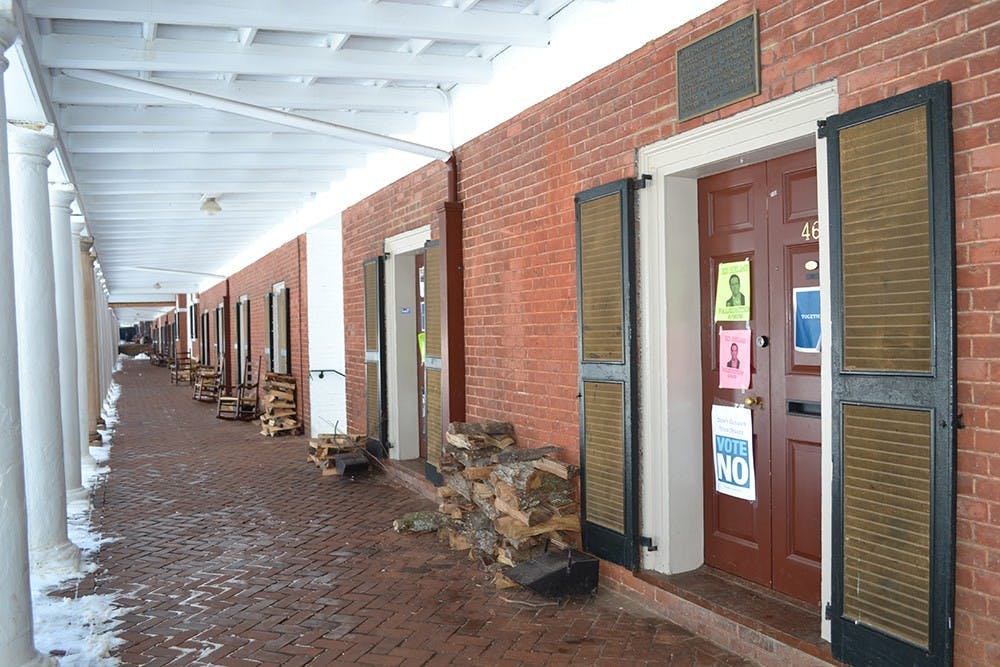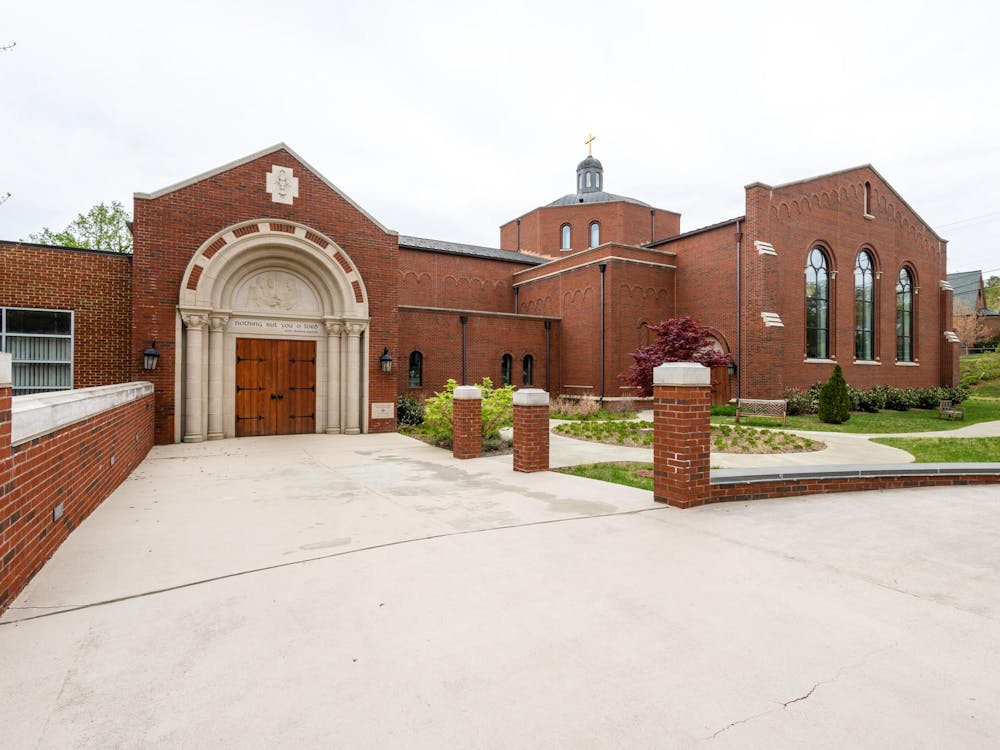The Lawn Selection Committee released decisions last week determining Lawn room residency for the 2015-16 academic school year. Out of 251 applicants, 47 were selected by the committee for residency. An additional seven will be determined by a process separate from the committee.
The process — one of the most competitive at the University each year — has been quietly criticized for a perceived lack of diversity among the incoming 2015-16 Lawn class.
The selection committee is made up of 48 fourth-year students themselves prohibited from applying for Lawn residency. While 24 of these students are chosen randomly, the other half is made up of individuals representing specific groups in the University community, including all seven undergraduate schools.
A space on the committee is reserved for the Lawn senior resident, the president of Student Council, the chair of the Honor Committee, the chair of the University Judiciary Committee and the president of the Fourth Year Trustees. Members are also selected from the Asian Student Union, the Black Student Alliance, the Inter-Fraternity Council, the Inter-Sorority Council, the Multicultural Greek Council, the National Pan-Hellenic Council, the Global Student Council, the Latino Student Alliance, the Middle Eastern Leadership Council, the Queer Student Union, the Student Athlete Advisory Council and the transfer student population.
The committee is overseen by the Lawn Selection Process Organizing Committee, run by Dean of Students Allen Groves. The organizing committee is composed of the Dean of the Office of African-American Affairs, the Director of Information Technology in Housing and Residence Life, the Senior Resident of the Lawn and the presidents or chairpersons of Student Council, the Honor Committee, the University Judiciary Committee and the seven undergraduate school councils.
The committee used a new system this year to allocate Lawn rooms, after concluding that old methods failed to fully evaluate candidates. Fourth-year College student Sky Miller, the current senior resident of the Lawn, said revisions were made based on feedback from former selection committee members.
“Feedback from the last few years of selections processes indicated that members of the committee were not able to adequately review over 250 applications,” Miller said. “Members found themselves not reading applications in their entirety, not engaging with essays and going to easy measures like GPA to make decisions.”
The administration was not involved in this change. Although the organizing committee consists of administrators in part, Groves said the selection committee — which sets its own procedures for choosing applicants — is wholly student-run.
“Although I pull together the group of students charged with organizing the selection process, I play no role in review of applications or selection decision,” Groves said.
Lawn room applicants were considered through a blind ranking system under which, according to a University website, each application is assigned a number used to identify the applicants. The selection committee was broken down into groups — and while all applications were considered by at least two people, not every committee member read every submission.
“In our new system, committees first reviewed applicants to determine if they were qualified to live on the Lawn,” Miller said. “A ‘yes’ vote given by a committee indicated their belief that an applicant was qualified for selection.”
Miller said if an application received two “yes” votes from two different committee members, it would advance to be rated by each individual committee member from those committees.
“Of the 251 applicants, 110 received two ‘yes’ [votes] and were rated by the committee,” he said. “The top 47 received offers and then the next in line received waitlist offers.”
The order in which rooms are chosen — aside from the endowed and reserved rooms — is determined by a lottery.
Miller said he was pleased with the way the selection committee worked this year.
“While it was logistically challenging and there are certainly aspects to improve in the years to come, the process allowed for an in-depth review of applicants and a fruitful consideration through the Committee system,” Miller said. “The rating system allowed members to distinguish great applicants from good applicants among those they believed were qualified to live on the Lawn.”
However, Miller said there is rising concern among students that there is a lack of diversity within the Lawn community. The majority of those chosen to live on the Lawn this year identify as white. No black students were selected.
“I think last year’s Senior Resident said it best — that we can only select from those that apply, and obviously you don’t necessarily get the entire University represented in the applicant pool,” Miller said. “There are 47 rooms available but far more than 47 communities at the University.”
Some students have voiced their belief that Lawn resident selections are not appropriately representative — an argument often rooted in the overrepresentation of certain student groups among Lawnies. This year, nearly half of those chosen by the selection committee are currently members of either the Honor Committee or the University Guide Service. However, Miller said this statistic is misleading.
“Those groups have been majorly represented, but many of those students are all in different corners of the University,” Miller said. “It’s easy to say there are this many UGuides, but people don’t look at their other activities.”
Although Miller said diversity and comprehensive representation within the Lawn community should be emphasized, he also said that statistics can provide a skewed interpretation.
“It’s important to remember there’s a lot more to the picture in terms of diversity and representation than just the numbers.”
Third-year Commerce student Elyse Eilerman, who was chosen to live on the Lawn next year, said she believes that the blind application process allows for fair selection.
“The other Lawn residents that I know are incredibly accomplished, intelligent, motivated, inspiring people, and I think that it does them an injustice to insinuate that they somehow are less deserving of their selection because of this issue,” Eilerman said in an e-mail. “Furthermore, their interests, talents, passions and contributions to U.Va. are incredibly diverse and unique.”







